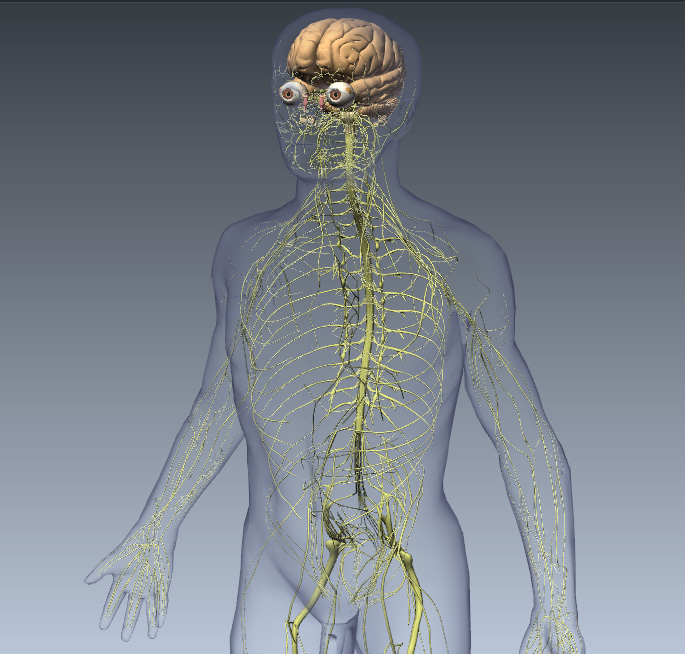What Is Neuropathy?

Peripheral neuropathy (often referred to simply as "neuropathy") refers to any condition that damages or disrupts nerves in the peripheral nervous system.
The peripheral nervous system is the network of nerves that connects the central nervous system, which consists of the brain and spinal cord, to the rest of the body.
There are three types of nerves in the peripheral nervous system: motor nerves, which regulate the movements of muscles under your conscious control; autonomous nerves, which regulate bodily functions outside your control; and sensory nerves, which carry messages from the sensory organs to the brain.
Experts have identified more than 100 types of peripheral neuropathies, according to the National Institute for Neurological Disorders and Stroke. The exact symptoms of the different neuropathies depend on the nerves affected.
People with a neuropathy affecting motor nerves usually experience muscle pain. They may also suffer from cramps, muscle twitching, muscle and bone loss, and changes in the skin, hair and nails.
Symptoms associated with autonomic neuropathy are diverse, and depend on the organs or glands affected. For example, if the nerves of the sweat glands are damaged, a person may lose the ability to sweat normally. Damage to other autonomic nerves can result in diarrhea, constipation, loss of bladder control, abnormal blood pressure and heart rate, and dizziness or fainting when rising to a standing position.
Sensory-nerve neuropathies can result in various complex symptoms, such as general numbness, loss of coordination and reflexes, burning sensations, heightened pain sensations or the inability to feel pain.
Sign up for the Live Science daily newsletter now
Get the world’s most fascinating discoveries delivered straight to your inbox.
There are many ways that neuropathies develop. Certain neuropathies are inherited, such as those associated with Charcot-Marie-Tooth disease, a type of hereditary neurological disorder.
More often, however, neuropathies are acquired from physical trauma, toxins, cancer medications, alcoholism, vitamin deficiencies, autoimmune disorders and metabolic disorders, including diabetes.
Although there are no treatments for inherited neuropathies, acquired neuropathies may sometimes be treated by addressing the underlying cause — for instance, by correcting nutritional deficiencies, undergoing physical therapy or giving up alcohol.
Follow Joseph Castro on Twitter. Follow us @livescience, Facebook & Google+.










